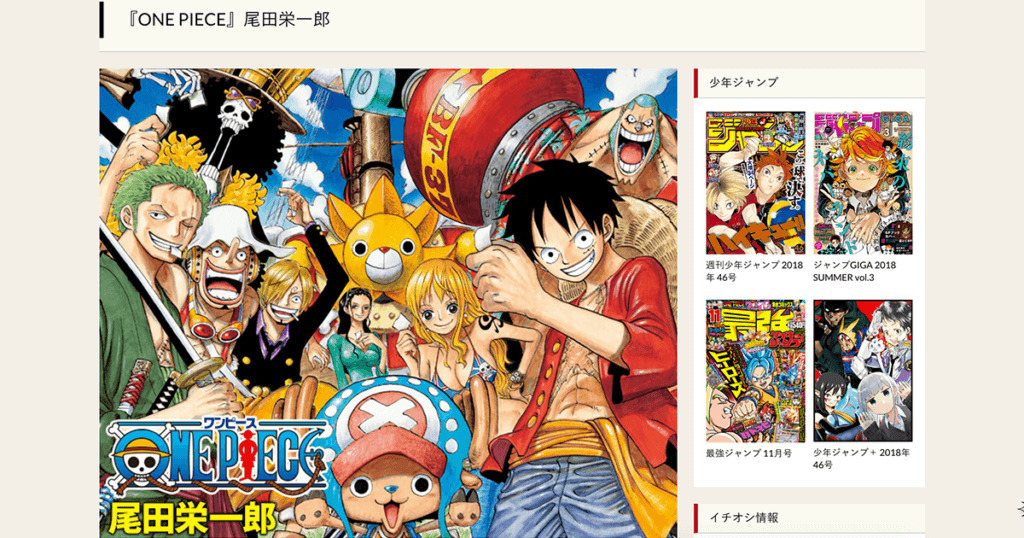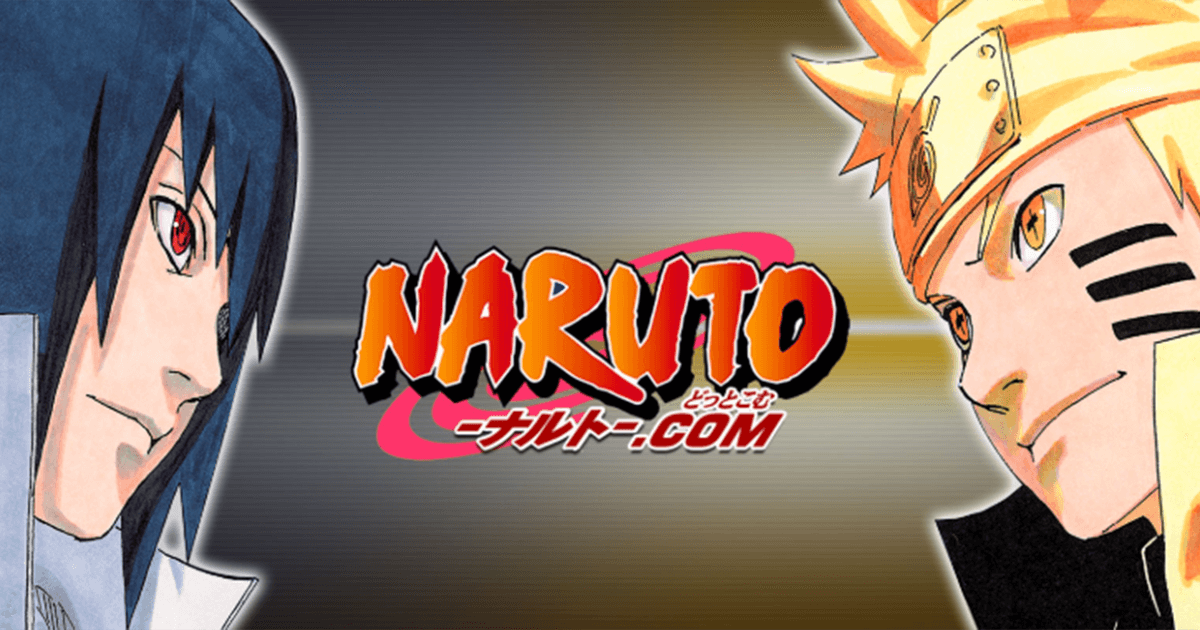
* Source: https://www.shonenjump.com/j/rensai/onepiece.html
The best-selling manga of all times, ONE PIECE, follows the adventures of Monkey D. Luffy, a boy who aims to become the Pirate King, and his crew of pirates.
One reason for ONE PIECE’s popularity lies in the expressions used by the characters that are rich in nuances. These Japanese expressions portray a uniquely realistic feel that is not found in the English version. Let’s look at some of the famous lines in ONE PIECE.
What is ONE PIECE?

* Source: http://one-piece.com/
ONE PIECE is a shonen manga for young male readers created by Eiichiro Oda and it made its debut in the Weekly Shonen Jump manga magazine in 1997. It has since then expanded into anime, games, and many others. The series has been collected into 89 tankobon volumes and is still selling well.
1. 海賊王(かいぞくおう)に、俺(おれ)はなる!! Kaizokuoo ni, ore wa naru!!
(I will be the Pirate King!!)
Said by Luffy
This is perhaps the most frequently repeated line in the whole series.
Usually, this is said as “俺は、海賊王になる! Ore wa kaizokuoo ni naru!” but the word “海賊王 kaizokuoo” (Pirate King) is brought in front for emphasis despite the unnatural grammar. This is a famous line to show Luffy’s determination.
In Japanese, you can have the flexibility to switch the word order, as long as the verb appears at the end of the sentence. You can emphasize your point by bringing what you want to say right at the beginning of the sentence.
The original sentence should be “俺は、海賊王になる Ore wa kaizokuoo ni naru” but in order to emphasize “海賊王 kaizokuoo”, it is brought to the front of the sentence.
2. 正義(せいぎ)は勝(か)つって? 勝者(しょうしゃ)だけが正義(せいぎ)だ! Seigi wa katsutte? Shoosha dakega seigida!
(Justice will win? Only the winner is Justice!)
Said by Doflamingo
Doflamingo is a firm believer in winning, as he had once been the most powerful pirate and ruler of a kingdom.
正義 Seigi (Justice) and 勝利 shoori (victory).
The meaning changes drastically if we simply replace the two words.
By using the word “だけ dake” (only) to focus only on the winner (shoosha), we can feel Doflamingo’s ego.
To paraphrase in simple Japanese, the line becomes “正義は勝つと言っているんですか。そうではありませんよ。勝者だけが正義ですよ Seigi wa katsu to itteirun desuka. Soodewaarimasenyo. Shoosha dakega seigi desuyo.” (Are you saying that justice will win? I don’t think so. Only the winner is justice)
The particle to denote quotation, “と to”, can be replaced with “~って tte”. It can be used in examples such as “彼女、明日来るって言っていたよ Kanojo, ashita kurutte itteitayo” (She said she will come tomorrow).
3. この海(うみ)で一番自由(いちばんじゆう)なやつが海賊王(かいぞくおう)だ! Kono umide ichiban jiyuunayatsuga kaizokuooda!
(The person with the most freedom in this sea is the Pirate King!)
Said by Luffy
This is a typical Luffy expression.
In his opinion, the strongest or wealthiest person does not make a Pirate King. Instead, he thinks that person with the most freedom is the Pirate King and that’s what he wants to be.
To paraphrase in simple Japanese, the line becomes “この海で一番自由な人が、海賊王ですよ Kono umi de ichiban jiyuunahito ga, kaizokuoo desuyo”. Replacing “人 hito” with “やつ yatsu” turns the speech into a rough expression. Luffy’s choice of harsh words portrays his strength and vigor.
4. 今(いま)の時代(じだい)を作(つく)れるのは、今(いま)を生(い)きている人間(にんげん)だけだよ…(・・・)!! Ima no jidai o tsukureru nowa, ima o ikiteiru nigen dakedayo…!!
(Only those who are living now are able to create this Era)
Said by Silvers Rayleigh
Having served as the right-hand man to the Pirate King, Gol D. Roger, Silver Rayleigh is in retreat and is a perceptive man.
今の時代 ima no jidai (current age)/作れる tsukureru (capable of creating)/今を生きる ima o ikiru (living right now)/人間だけ ningen dake (only the one)
This line is structured in the conventional way and there is no need to rephrase it into simple Japanese. Expressions with many omissions are considered more casual and rough. Rhetorical omission is used liberally in the earlier expressions.
When there are no omissions and the subject and predicates are properly used, it shows a high level of education and upbringing of the speaker, in this case, that of Rayleigh’s.
5.長(なが)い間(あいだ)…(・・・)クソお世話(せわ)になりました! Nagai aida… Kuso osewaninarimashita!
(All these years… Thank you for your damn kindness)
Said by Sanji
Sanji has been speaking casually all along and this line is said at the end with respect and thankfulness.
長い間…nagai aida…(for a so long time)/クソ kuso (fucking/damn)/お世話になりました osewaninarimashita (very much appreciate )
“お世話になりました Osewaninarimashita” is a very humble and polite expression. However, by inserting “クソ kuso” in front, it shows a wild side despite the sincere appreciation.
Sanji is thankful but embarrassed to show his honest feelings at the same time. This expression shows both sensitive and wild sides of Sanji.
6.心配無用(しんぱいむよう)…道(みち)はある! Shinpaimuyoo… Michiwaaru!
(No worries… There is a Way!)
Said by Zoro
Through years of rigourous training regimen, Zoro naturally utters this speech with animation.
心配無用 shinpaimuyoo (don’t even need to worry)※formal/道はある michiwaaru (there should be the way)
This is one famous line that you can memorize for future use.
This is a four-character idiom. Chinese speakers may be familiar with this expression. You can paraphrase it as “心配しなくてもいいですよ。道(方法)はあります。 Shinpai shinakutemo iidesuyo. Michi (Hoohoo) wa arimasu”.
7.愛(あい)してくれてありがとう Aishitekurete arigatoo
(Thank you for loving me)
Said by Ace
Ace was prepared to die and he said this to show his true feelings.
愛してくれて aishitekurete (for loving me)/ありがとう arigatoo (thank you so much)
In Japan, strong love expressions are less frequently used compared to other countries.
Many readers are thus touched by this line which expresses Ace’s true feelings without hesitation.
“くれる Kureru” is a benefactive expression unique to the Japanese language. It is difficult to translate to English as there are no equivalents.
“Kureru” means that someone is doing something for you that is beneficial to you and you appreciate this action. It shows that you appreciate the fact that someone loves you.
Try mastering this very useful expression in your daily life, such as “来てくれて、ありがとう Kitekurete, arigatoo” (thank you for coming) and “ご飯を作ってくれてありがとう Gohan o tsukuttekurete arigatoo” (thank you for preparing the meal).
The above are some famous lines said by characters in ONE PIECE that show their lives and values.
Try reading the lines again and recall the corresponding episodes at the same time. Does it make the lines more meaningful and expressive?
It is easier to learn a foreign language if we connect the language with memories and feelings instead of rote learning.
You can use famous quotes from popular manga and make new expressions your own words.
Stay tuned for our next updates.
※ The English translation in this article may differ from the actual English version of ONE PIECE.






